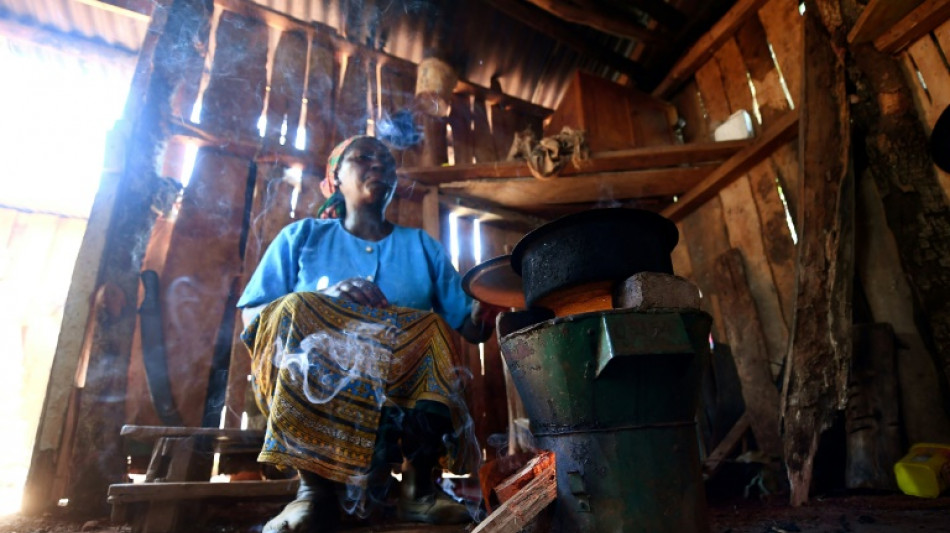Carbon-cutting benefit of cookstoves vastly overestimated: study
/ Photo: FRANCK FIFE - AFP/File
The greenhouse gas-reducing benefit of replacing highly polluting cookstoves has been overestimated by up to 10-fold, researchers reported Tuesday.
A peer-reviewed study looked at carbon offset schemes based on getting rid of primitive charcoal- or wood-burning home stoves used by some 2.4 billion people that contribute to global warming and cause millions of pollution-related deaths every year.
Projects to provide cleaner, more efficient alternatives often raise funds by the sales of credits, which are based on estimates of how much carbon the new cookers keep out of Earth's atmosphere -- one credit should equal one tonne of carbon dioxide.
The problem, according to the study published in the journal Nature Sustainability, is that a lack of methodological ”rigour" is causing overestimation.
The scientists evaluated five methodologies used to measure emission reductions of cookstove projects system, and found them all wanting.
Data covering some 40 percent of cookstove credits worldwide showed that 26.7 million carbon credits barely avoided a tenth of the CO2 emissions claimed, about 2.9 million tonnes.
In carbon markets, one credit corresponded to one tonne of CO2.
Extrapolating out across all cookstove projects, the authors estimated credits were overvalued by more than 10-fold.
Carbon credits allow corporations -- or countries under certain conditions -- to offset greenhouse gas emissions by investing in projects that avoid CO2 emissions, or remove CO2 from the air.
Over-crediting damages the credibility of carbon markets, Annelise Gill-Wiehl, a researcher at the University of California at Berkeley, told AFP.
"No one has trust that one carbon credit represents one metric tonne of reduced emissions", she told AFP.
"Whoever is buying the credits is allowed to emit one more tonne of CO2 under the premise that they're not actually emitting it."
The research caused a stir in the so-called voluntary carbon market even before it was published when a review draft was widely circulated.
Investors, project developers and other industry representatives proactively contacted journalists, urging them not to "exaggerate the exaggerations".
But the researchers insisted their work would help strengthen the trade in carbon offsets.
"A carbon credit market built on exaggerations is destined to fail," said co-author Barbara Haya, an expert on offset quality and director of the Berkeley Carbon Trading Project.
"Our study offers specific recommendations that could make clean cookstoves a trusted source of quality carbon credits, and carbon credits a stable source of funding for clean cookstoves and all of their benefits for people and forests."
R.Khurana--BD
